Airport-Gazipur BRT Line: Cost doubles, 20pc progress in 6 years
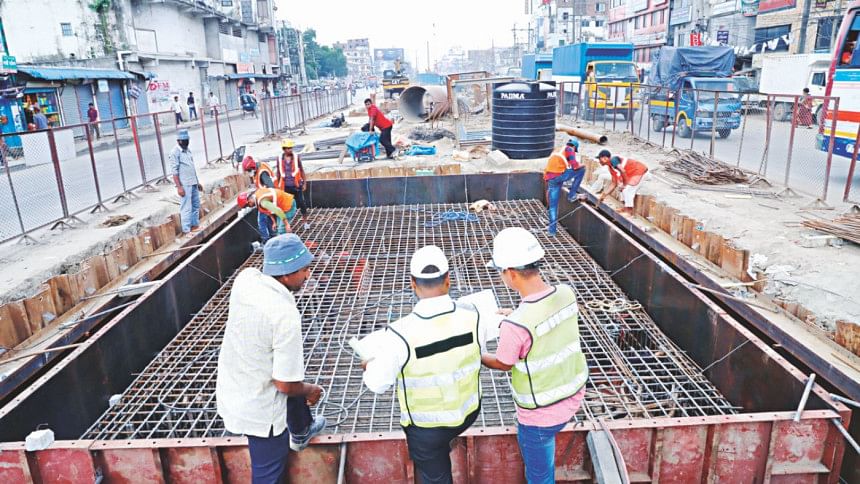
It's another classic case of delay in project implementation and a whopping rise in the project cost in the process.
The project for an extended 20.5km rapid bus service for mass transport between Gazipur and Shahjalal International Airport was taken up in 2012.
Six years later, only 20 percent of the job has been completed although the current deadline ends in December, according to project documents.
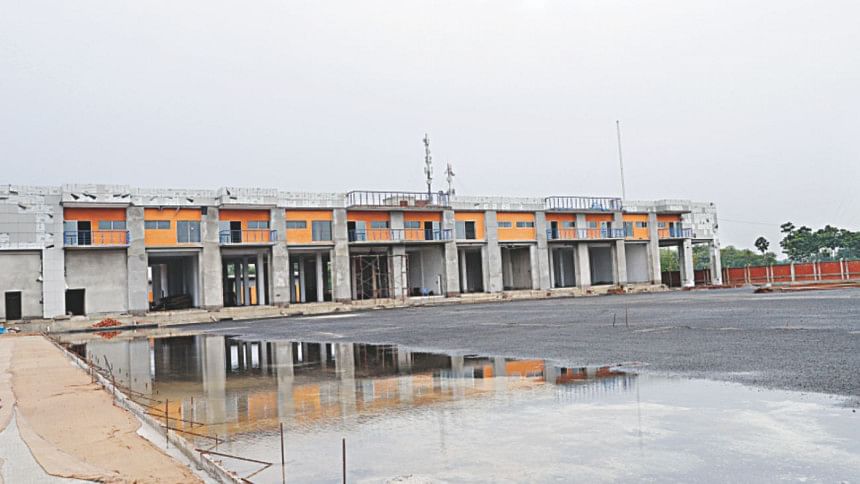
So those with a dream of commuting this route with an on-time, reliable modern bus service may have to wait another six years, officials said.
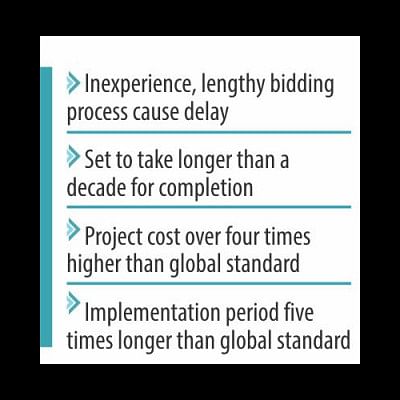
But it will come at a heavy price too. Already, the original estimated project cost has more than doubled to Tk 4,264 crore from Tk 2,040 crore.
“It means an absurd average cost of around $26 million [about Tk 218 crore] for building a kilometre of Rapid Bus Transit (BRT) service while the global standard is highest $6 million,” said Prof Shamsul Hoque, a former technical expert for the proposed BRT system.
Citing the manual of New York-based Institute for Transportation and Development Policy, he said the philosophy of the BRT service was that it would be built at a minimum cost, ideally within two years, on existing roads.
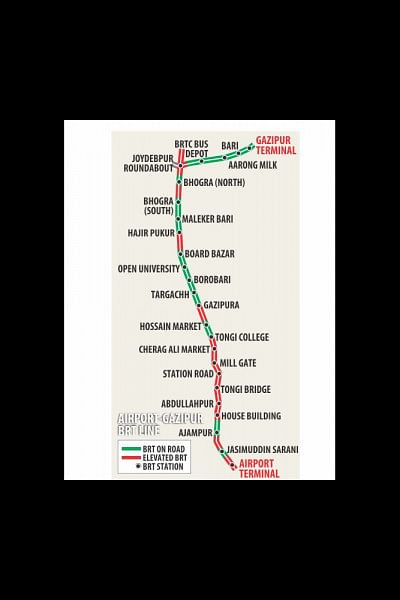
“In Bangladesh, it seems it's going to take more than a decade,” he said, adding that such slow progress and the extremely high cost were making the scheme look impractical.
A top project official said poor planning and a lack of experience in building a BRT system were causing the delay.
However, by the time the project ends, the country's economic condition and transport demand will both change. This means the project is unlikely to serve the intended purpose, said Prof Shamsul.
The government initiated the airport-Gazipur BRT scheme in 2012 as an extension of the system recommended by the Strategic Transport Plan. The success of the scheme, occupying two central lanes of a national highway, would depend on the effective implementation of the original BRT system, from the airport to Keraniganj, he said.
But with the original section implementable only in part, the extended section looks irrelevant, he added.
The BRT system, designed for urban implementation, is not compatible with the purpose, functions, and specifications of a highway, he said.
“It may inflict an irreparable damage to a vital economic gateway of the capital and the national highway with half a dozen flyovers and overpasses,” said Prof Shamsul.
Project Director Sanaul Haque attributed the delay to lengthy bidding and design processes and a time-consuming data collection survey.
The BRT system is the first of its kind in the country. It took four years just to hire the consultant and prepare the detailed design, he said.
“Besides, we are implementing the scheme keeping the highway and its adjoining service roads fully functional,” he said, adding, “Our job is heavily impeded as the highway remains mostly submerged in rainwater for nearly half the year and local factories dump effluent on the road for a lack of drainage facilities.”
The number of elevated structures, areas of stations, earth-moving work, pavement laying, and storm drainage work increased significantly in the detailed design compared to what was in the draft. The number of articulated buses that would ply the route has also been increased to 120 from 50, he said explaining the rise in the project cost.
Officials were planning to place a revised project plan to the Planning Commission soon for approval of the increased cost and a fresh completion deadline of June 2020.
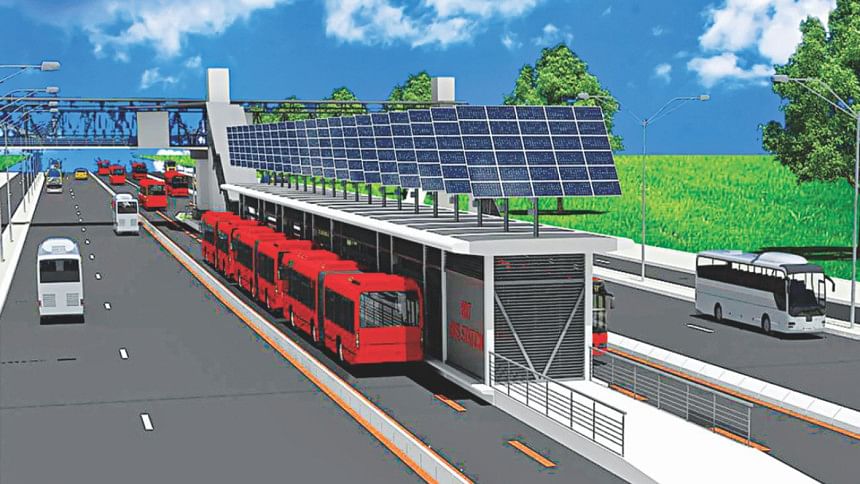
But project insiders said the extended section of BRT line-3 would take even more time to complete.
The extended BRT line-3 is being implemented in four packages with development loan from the Asian Development Bank, French Development Agency and Global Environment Facility. They will commit Tk 1,651 crore while Tk 389 crore will come from tax money.
The Roads and Highways Department (RHD), Bangladesh Bridge Authority (BBA), and the Local Government Engineering Department (LGED) are jointly implementing the packages of the project titled “Greater Dhaka Sustainable Urban Transport”.
The project includes construction of 25 BRT stations, a depot in Gazipur, two terminals (one in Gazipur and another at the airport end), six overpasses, improvement of 56km link road, 20.5km footpath development, development of 24km storm drainage facility and building 10 kitchen markets.
The BBA is assigned to build 4.5km of elevated roadway for the BRT from Uttara to Cherag Ali market and a 12-lane Tongi Bridge.
Liaquat Ali, project director for this package, said they were doing test piling, survey, soil test and equipment mobilisation.
The RHD is building 16km of BRT lane and six overpasses while the LGED is building the depot, kitchen markets and improving the link roads.
This section was meant to provide a fast mass transport service to the people of Gazipur, Tongi and Uttara so they could commute to Dhaka in modern articulated buses arriving at stations every three to five minutes.
An interchange at Joydevpur intersection and overpasses at Bhogra, Abdullahpur and airport intersections would greatly ease traffic movement, said Sanaul.
In its previous tenure, the Awami League government made repeated pledges that it would open rapid bus service between the airport and Keraniganj by 2013 and between Gazipur and the airport by 2014.

 For all latest news, follow The Daily Star's Google News channel.
For all latest news, follow The Daily Star's Google News channel. 



Comments